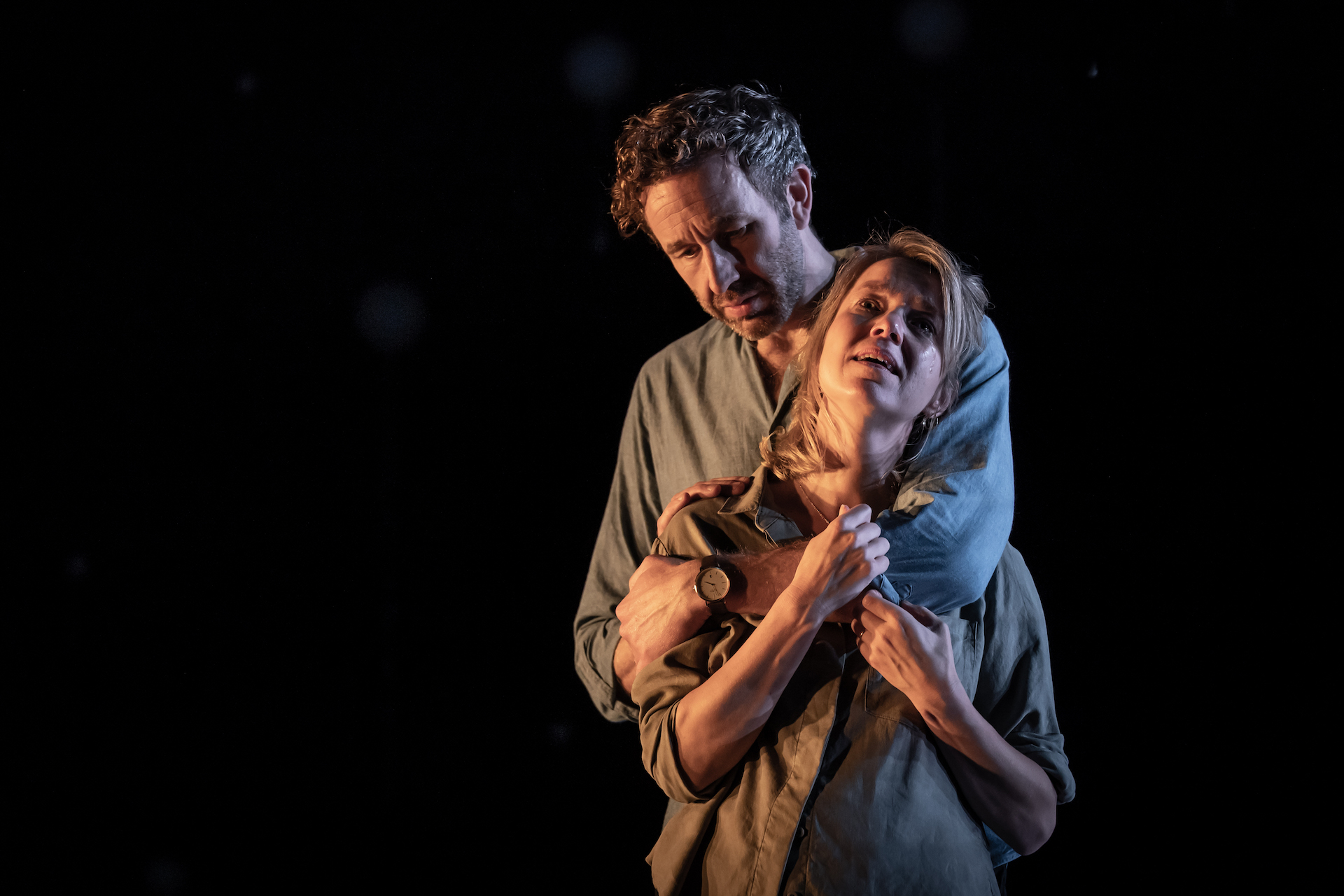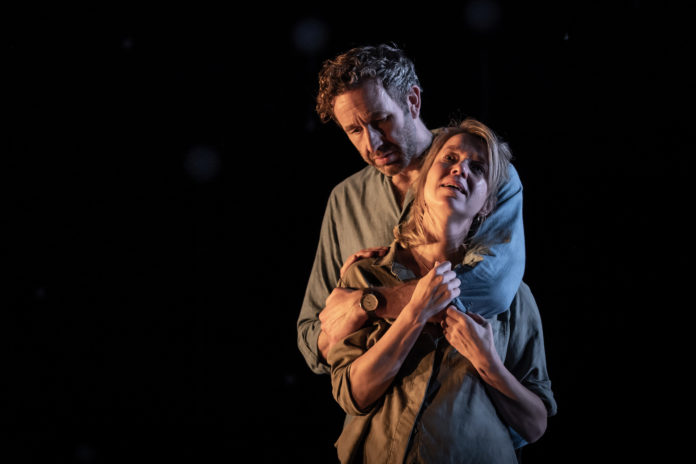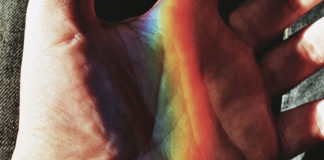This week is peak time to test out Nick Payne’s hypothesis of life as a series of accidents, narrow squeaks and near misses. While the Perseids are doing their August explosive thing, go home after the show and look in the night sky with a lover, and see whether both of you see the same shooting star.
What are the chances?
Not a lot, according to bored cosmic scientist Marianne, who has attracted master-beekeeper Roland with a chat-up line about licking one’s elbow whose chance of success is surely even unlikelier than you and your lover catching the same flash in the sky.
Habituated to a world of such ordained and linear simplicity, he is wildly aroused by Marianne’s conception of everything as being only one of a limitless number of possibilities (like rolling a dice 6,000 times), and a very funny sex scene ensues.
Tovey proves that less is more in his own performance – so comic, but also so real
How did two such different people make it together? In the sketchy plot, they move in together, betray each other, marry, and then one gets brain cancer. All the way through, though, we’re seeing the decisive moments and choices that got them to the next step – the discarded options, too, that Marianne is on about, and which are as central to her work understanding the cosmos as they are peripheral in human real life.
The comedy flies thick and fast in both, with entirely different accents, and showing that sexuality has nothing to do with it – it’s the particular way you try to lick your elbow that does, and good luck to scientists in quantifying that. The extravagantly colourful, stringy Omari Douglas waggles his long tongue in a blatant invitation to the stolid Russell Tovey who wavers between killing embarrassment and eager response. Alternatively, awkward fortyish academic Anna Maxwell Martin’s elbow pitch at O’Dowd comes across poignantly as a clumsy hybrid between a science lecture topic and a tip she came across on a dating forum. The masterful Irish comedian breaks the fourth wall, and we in the audience all flinch with him. Then he butts elbows with her, and we’re bang up to date.
The 50 little scenes dash by, in three or fives, as each happening shows possible tiny variations, where one microscopic difference led the couple onwards together, and the others would have sent them hurtling into oblivious lives. This becomes less playful and more meaningful when clever Marianne – or Manuel, Douglas’s male alternative – discovers a brain tumour that is eating away at her/his ability to speak and control her/his life.
 In Douglas’s performance, the terror and need is wrapped distractingly within his signature floridness, making Tovey’s attempts to reach him extremely touching. Tovey proves that less is more in his own performance – so comic, but also so real. He is, and will be, bereft when the startling Douglas is gone, and he may well find the predictability of beehives is no longer enough for him.
In Douglas’s performance, the terror and need is wrapped distractingly within his signature floridness, making Tovey’s attempts to reach him extremely touching. Tovey proves that less is more in his own performance – so comic, but also so real. He is, and will be, bereft when the startling Douglas is gone, and he may well find the predictability of beehives is no longer enough for him.The newest cast, Maxwell Martin and O’Dowd (pictured above, by Marc Brenner), show longer years of self-containment and emotional lonership in their performances, whose subtleties will surely only grow in the run. The sick Marianne’s tragedy is her defeatist resignation to having no one to help, and there’s a hint that this social condition is what primarily drives the trips to Dignitas. But in Roland’s supportive but brief responses to her breakdown, O’Dowd interestingly shows how a habitual lack of curiosity about one’s partner may be decisive for a relationship when the chips are down.
Director Michael Longhurst deserves acclaim for achieving such integrity and emotional balance in such contrasting casts and readings – and both pairs wring immense entertainment out of Payne’s light-penned script. But it’s Russell Tovey, with his round ears sticking out like bee’s wings, who steals the show for me.









